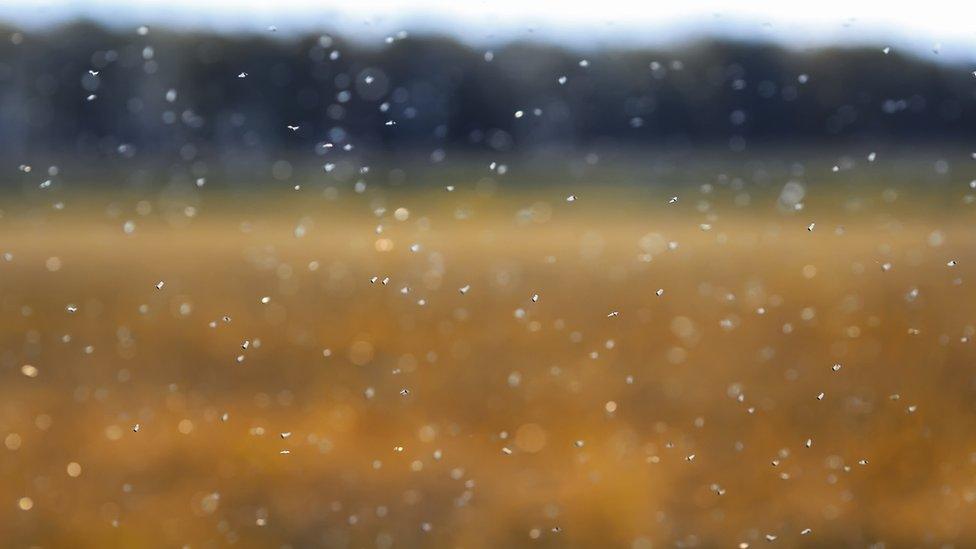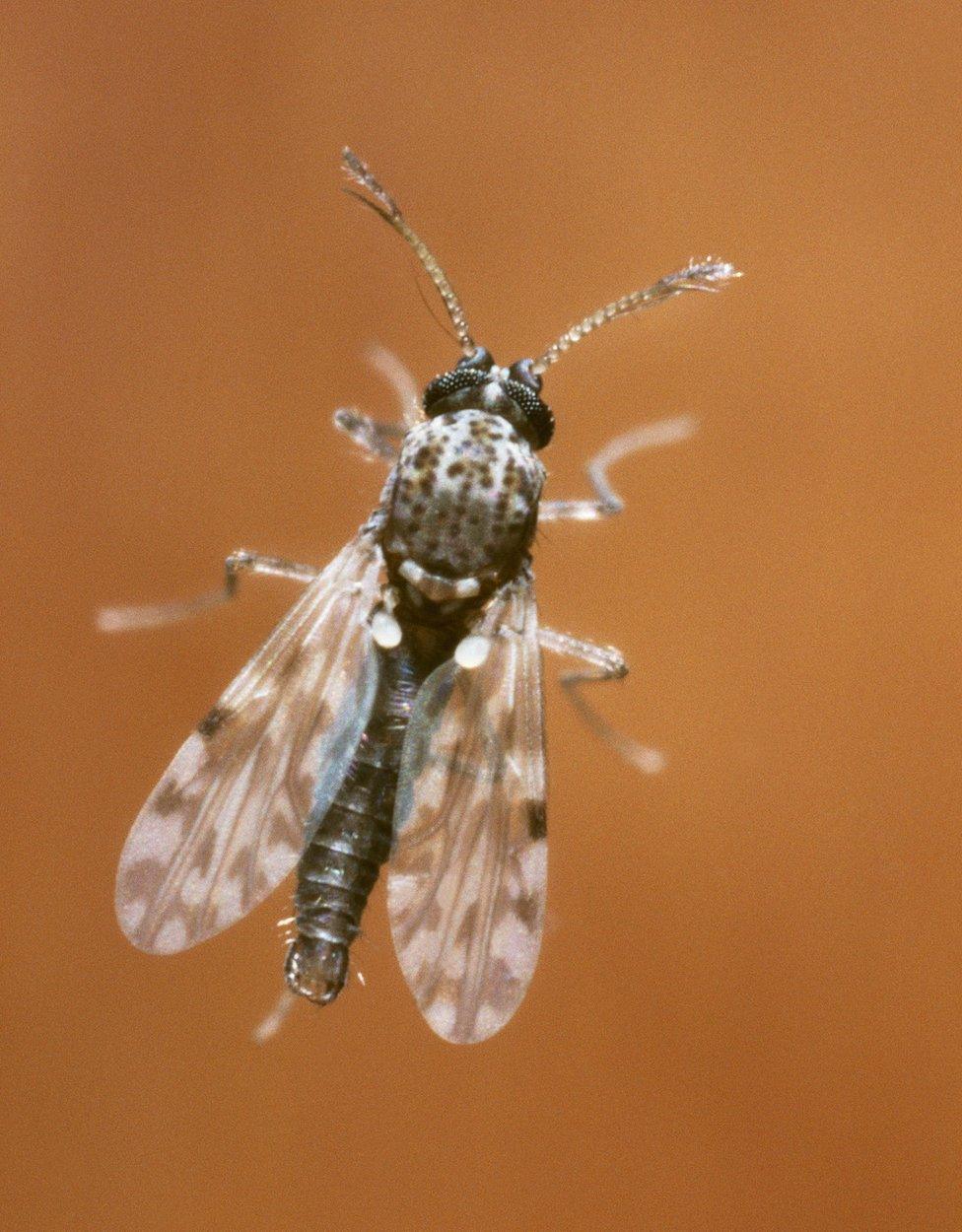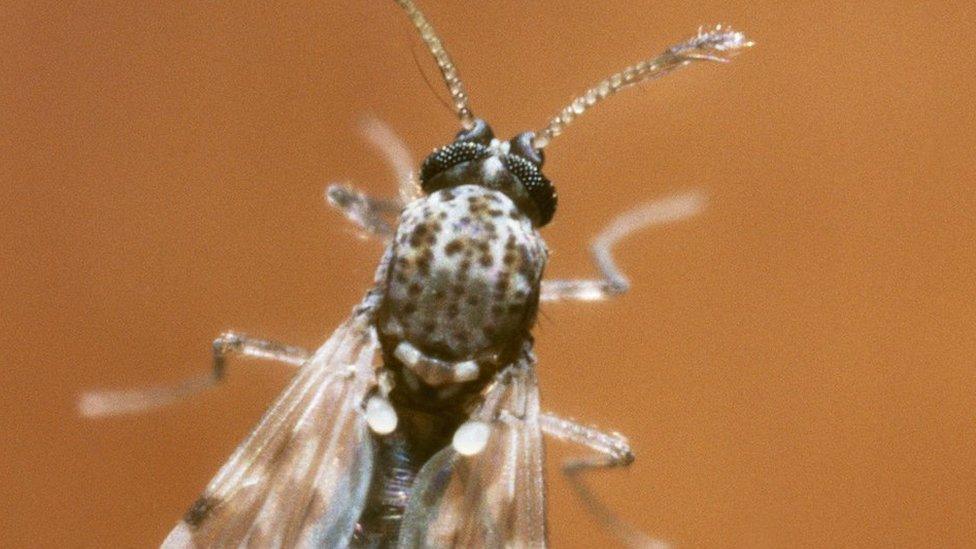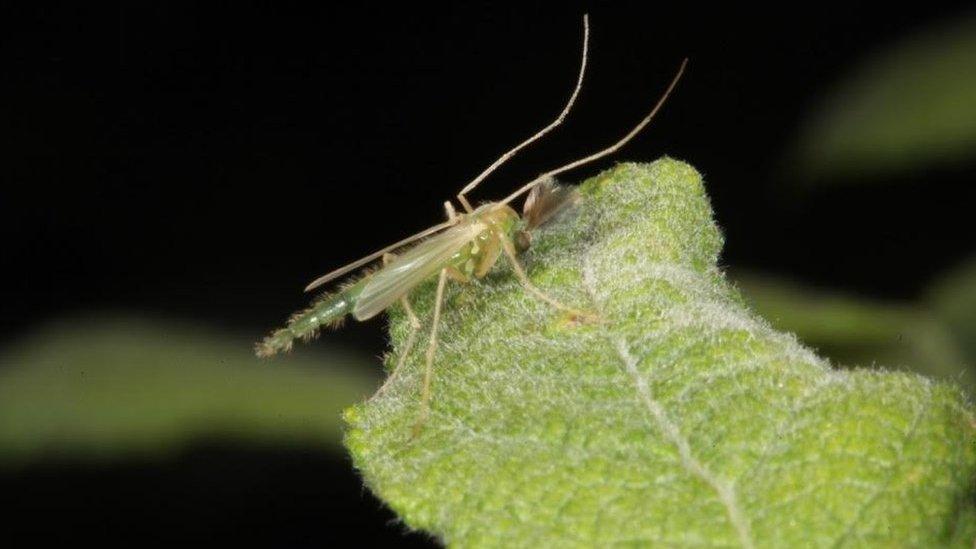Scotland's midges carrying 'previously unknown viruses'
- Published

Scotland's biting midge population carries previously unknown viruses, according to new research.
The viruses are of species similar to those found in insects and other invertebrates.
The Scottish study also indentified an alphanodavirus and the scientists said some of these viruses can prove fatal to animals, such as pigs and birds.
They said midges were not a current health concern in Scotland and the public should not be concerned.
A notorious pest in the Highlands and Argyll, the midges in the study were collected in the Loch Lomond and Trossachs National Park.
Scientists at the Medical Research Council-University of Glasgow Centre for Virus Research carried out the study, which has been published in the scientific journal Viruses, external.
The newly-identified viruses, an alphanodavirus, two rhabdo-like viruses and a chuvirus, were found to be sufficiently different from known species to be categorised as "novel".
The scientists said there was currently no evidence that these viruses pose a threat to humans.
In other parts of Europe, midges were found to be responsible for the spread of SBV, a virus that affects livestock, in 2011.
Lead author of the research Sejal Modha said the study had sought to expand knowledge of insect viruses.
She said: "Although midges are not currently a public health concern in Scotland - and we stress there is nothing for the public to be concerned about - our research gives us a better understanding of midges and the viruses they may carry, helping us prepare for any possible future emerging risks through improved surveillance and knowledge."

Scotland's biting midge season usually starts in May and ends in late September

Co-author Joseph Hughes added: "What we found is the tip of the iceberg in terms of discovering new viruses.
"With an estimated 5.5 million insect species on earth, there are likely to be several million more insect viruses to be discovered.
"What we are seeing globally, due to several factors including climate change, is the movement of virus vectors - or carriers - to new regions."
There are at least 41 different species of biting midge known in the UK, of which 37 are present in Scotland, the researchers said.
Scotland's midges season usually start mid to late May and goes on until late September.
Billions of the tiny flies can emerge in a season.
Females need blood need to mature the eggs they carry and their bites can leave itchy red lumps on skin.
Males feed on nectar and other natural sugars.
Scotland is also home to Chironomids, a "family" of non-biting midges that worldwide numbers thousands of species.
- Published9 July 2019

- Published1 March 2017
